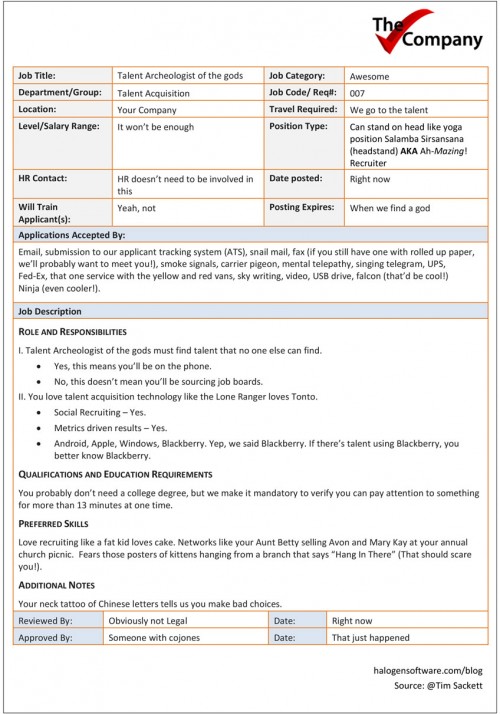I spoke in Huntsville, Al this week to a group of around 175 HR and Talent Pros for North Alabama SHRM. It was a fun group. They had a ton of energy and were willing to put up with me and my fast talking northern ways! My wife told me to be more respectful, than usual, on my way down to Alabama. She said southern women expected more manners than I was use to!
For those who don’t much about Huntsville it is a big military town, which means most people either work on the base, or work for a contractor supporting one of the many military contracts coming out of the base. There are literally hundreds of companies in Huntsville that are considered military ‘contractors’. That’s really just a big fancy term for companies that won a military contract, which is just a scope of work they need to do or deliver to the military.
If you haven’t worked a military contract before, they come with as much red tape and rules as you can expect from the U.S. government. That becomes a very big problem for HR Pros who love to follow rules! One thing that was apparent very early into the day was that some Huntsville HR and Talent Pros became very comfortable with saying the following statement:
“We can’t do that, we are a military contractor!”
You can probably guess what my answer was to that! “Yes, you can! You just have to find a way to do it!” What they didn’t expect was that my company was also a military contractor, I was going to accept any victim statements. Yes, you are a military contractor. Isn’t it great! Now, let’s find out how we can use Facebook to recruit and find you some really good talent!
But, Tim, OFCCP! OFCCP won’t allow us to social recruit! Really. It really says within OFCCP regulations that you can’t recruit on Facebook!? Well, no, but…you just don’t understand. Yeah, I understand more than you really know. I understand it’s going to be hard, but it can be done. I also understand that it’s really easy to fall the victim and use OFCCP as a crutch to why we can do our job.
I actually spoke to two pros who were going through OFCCP audits. Scary stuff for any HR or Talent Pro. But I didn’t even let them use it as a crutch. I asked them if they would get through it. Yes, was the answer. Did you get fined? No. So, now you just have to figure how to make it the sourcing you need to do, work within your OFCCP process. Not easy. But doable and needed.
The most dangerous thing we’ll ever face in our career is becoming a victim of can’t. I’m a firm believer you can try to do anything. We might not succeed, but it shouldn’t stop you from trying. Things like OFCCP are there to catch bad companies, doing bad things. I’ve never spoken to a good company, with good people, trying to do the right things, that ever had an issue with OFCCP! Ever!
Go do the right things for your organization, and in the end trust that why you might get audited, you are doing what is right. That’s ultimately all you really can do.

